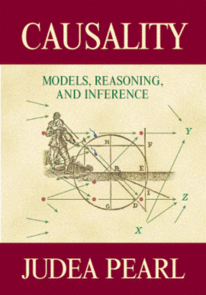What's New
- E-Mobility Day at HdM
-
 Thinking about buying a little e-car for yourself? Or maybe something a bit bigger, like a Tesla? Well, if there weren't so many open questions like charging, repairs, prices, range problems etc. The state of Norway seems to be unperturbed and just announced that they would prohibit the sale of gas/diesel cars after 2015. . The first E-Mobility Day at HdM is going to tackle those questions with the support of Fraunhofer IAO and Vector Informatik.
Thinking about buying a little e-car for yourself? Or maybe something a bit bigger, like a Tesla? Well, if there weren't so many open questions like charging, repairs, prices, range problems etc. The state of Norway seems to be unperturbed and just announced that they would prohibit the sale of gas/diesel cars after 2015. . The first E-Mobility Day at HdM is going to tackle those questions with the support of Fraunhofer IAO and Vector Informatik. We will dive into complicated charging issues, get an overview of current developments in e-mobility and have a discussion with the audience. And we will make a trip to our neighbour, Fraunhofer IAO, to take a look at their existing infrastructure. And if you want to know, whether e-mobility makes sense for a company even economically, you can talk to Tim Kost from BridgingIT. He comes with his Tesla - one of 20 that the company has and uses throughout Germany for its consultants.
And that is not all at this day: for the first time we will test out smartphone-based solution for live-streaming of events. Hopefully you will be able to use the URL for live participation in the event. But your browser needs to support WebRTC for this!
Agenda 13.45 Welcome, Prof. Walter Kriha 13.50 „EcoGuru – E-Mobilität am Fraunhofer IAO“ Kristian Lehmann M.Sc., Fraunhofer IAO Stuttgart (http://ecoguru.de) 14.15 Beginn Rundgang IAO Der Rundgang kann nur in kleineren Gruppen stattfinden. In der Zwischenzeit kann vor der HdM ein Tesla angeschaut werden. Tim Kost, Business Unit Manager & Senior Consultant bei BridgingIT wird dazu Rede und Antwort stehen. Seine Firma hat 20 Teslas im Einsatz. 15.45 Smart-Charging von Elektrofahrzeugen, Patrick Sommer, Vector Informatik 16.45 Diskussion mit dem Publikum zum Thema Elektromobilität 17.15 Ende der Veranstaltung
Note
Friday 10. June 2016, 13.45 - 17.15 at HdM, room 056. A live stream and chat is available. Directions can be found at hdm homepage. As always, the event is free of charge and open to the interested public.
- Workshop on Concurrency and Parallelism
-
On 15th January we are going to have a workshop on concurrency and parallelism, together with the industry. Different programming language and dataflow concepts will be presented and discussed along a real case. A final discussion of the different approaches will hopefully increase our understanding of this complicated topic. We will also discuss patterns of applicability with respect to the different technologies.
Some of the ideas for the workshop follow the book "seven concurrency models in seven weeks" by Paul Butcher. and some were suggestions from the course.
- The Case
-
Michel Zedler from Exxeta will be presenting a realistic case for parallelism. We will discuss the different technologies in the context of this case.
- Actors, Agents, active Objects
-
Clojure and Akka are well known for their agent-based architecture. And we should take a look at both. Vanessa Werner is currently working at Exxeta on Akka as part of her master thesis.
- Message Passing
-
Hidden behind the rather arcane topic of "Communicating Sequential Processes", MP has been a core architectural feature of Erlang for many years. And not just in the telco industry. Large-scale sites use many Erlang programs too. The GO language made the concept even more popular. The Butcher book has a chapter on CSP with Clojure and we could use it as an intro for the concept.
- Separating Identity from State
-
State and updates of state are usually the most critical parts of concurrent systems. But it is rather hard to imagine a system, where you can have variables without the state problem. Clojure seems to separate identity from state using STM mechanisms. A good reason to look at how this works by reading the chapter in Paul Butchers book. There is also a chapter on STM in the Herlihy book if you need more background on the algorithms behind. BTW: what level of isolation is provided by the algorithm in the Herlihy book? is it sequential consistency? linearizability? some form of snapshot isolation?
- Embarrassingly Parallel: GPU processing
-
This has not been covered in our course, but it gives us a good chance to better understand the differences between thread-level parallelism (our topic) and what can be done with different kinds of problems, e.g. massively parallel algorithms. The goal would be to clearly distinguish use-cases for both technologies.
- Real-time Stream processing
-
Just about the hottest topic in Big Data and large-scale sites: real-time processing of data in pipelines. There is an interesting architectural pattern called "lambda architecture", (not to confuse with Amazon's new lambda architecture, which is equally exciting..) which allows both batch and real-time processing of data. It is worth to take a look at this and see, what we can do with this kind of system. Tyler Akkidau has released some articles on the topic recently: The world beyond batch: Streaming 101 A high-level tour of modern data-processing concepts. and The Dataflow Model: A Practical Approach to Balancing Correctness, Latency, and Cost in Massive-Scale, Unbounded, Out-of-Order Data Processing.
Note
Friday 15. January 2016, 14.00 - 18.00 at HdM, room 056. A I am not sure about a live stream due to the workshop character of this event. It it is available, it can be found here hdm homepage.
